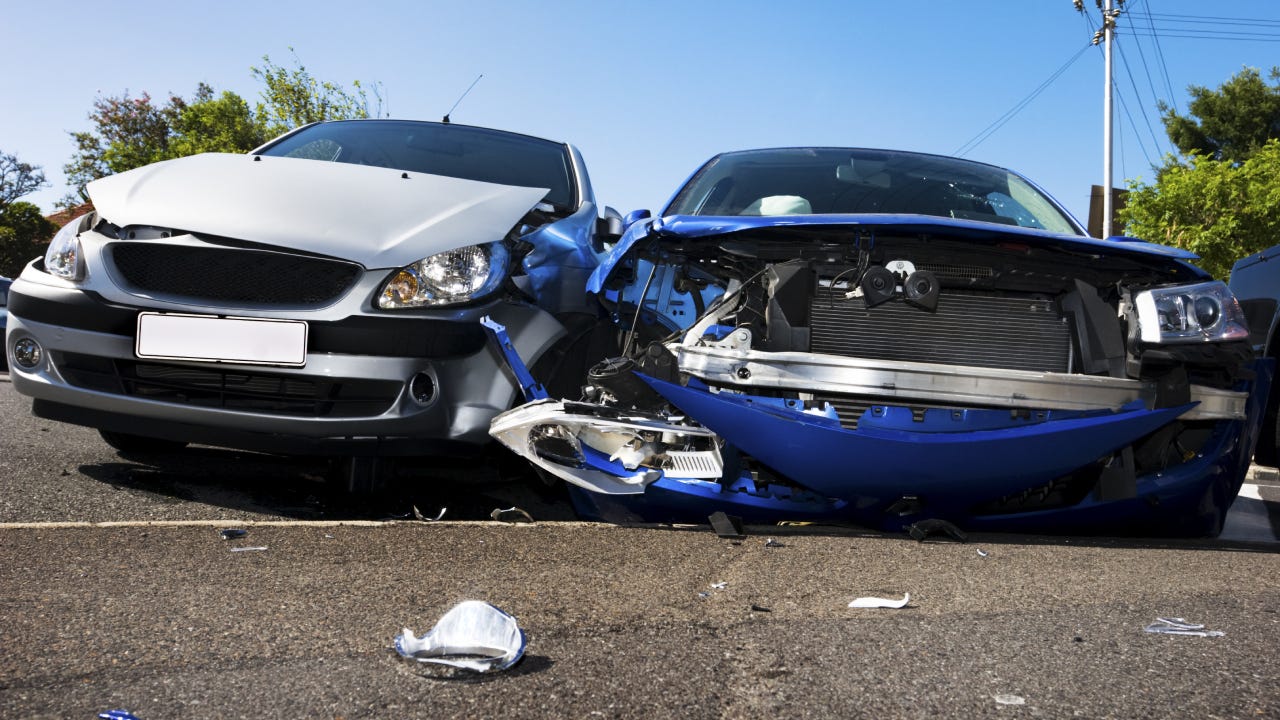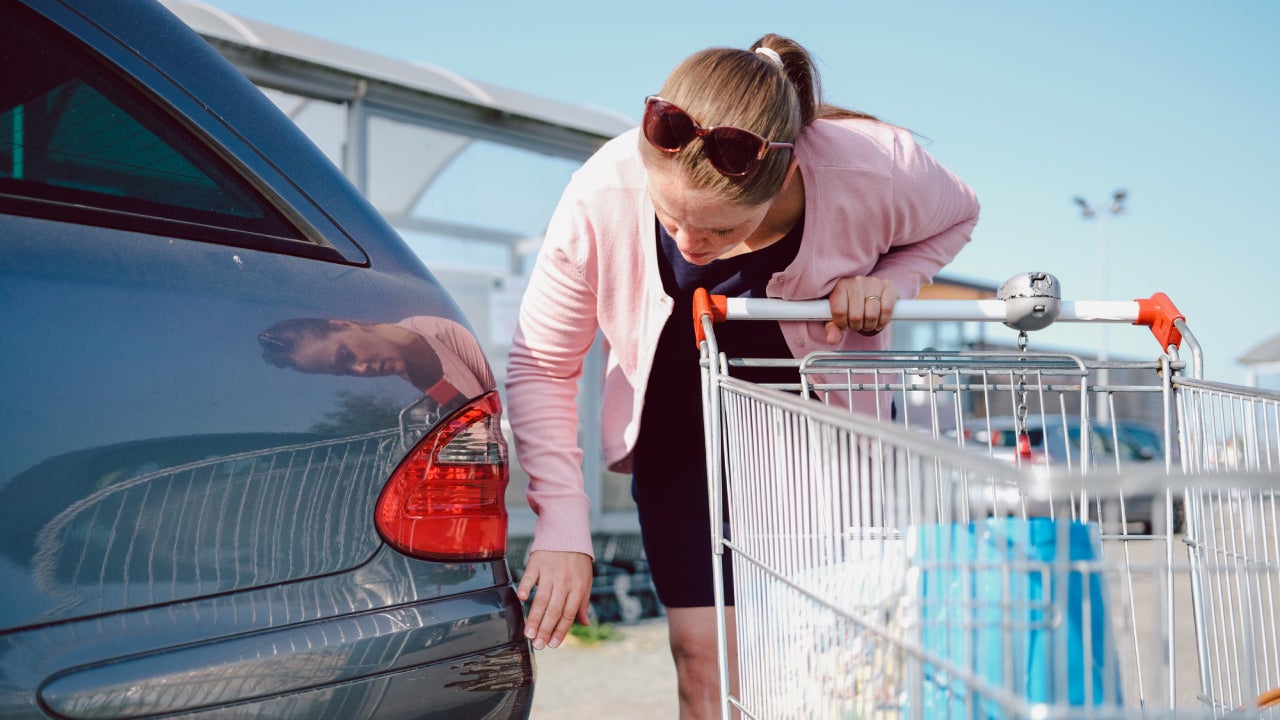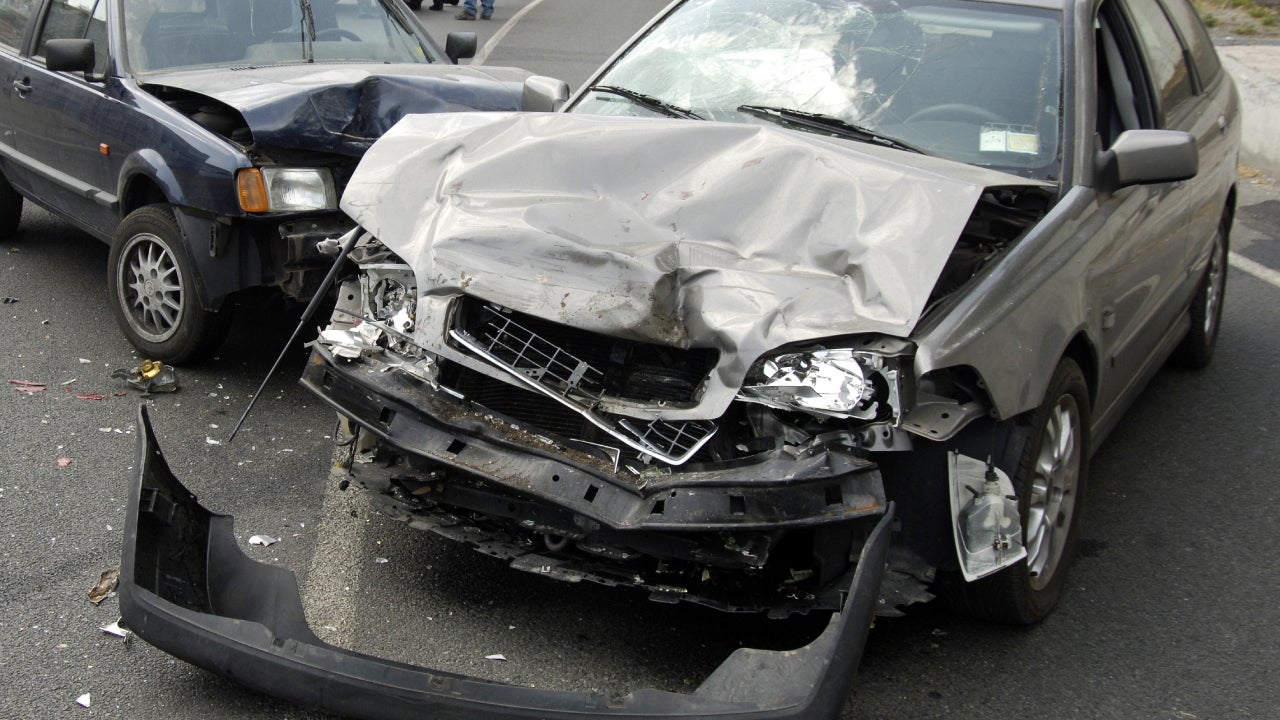What happens if you get in an accident without insurance?




Our writers and editors used an in-house natural language generation platform to assist with portions of this article, allowing them to focus on adding information that is uniquely helpful. The article was reviewed, fact-checked and edited by our editorial staff prior to publication.
Driving without insurance may seem like an easy way to save money, but the consequences can be serious. Even if you are not at fault in an accident, driving without insurance can lead to financial and legal troubles. In some states, car insurance is not mandatory, but drivers can still be held accountable for damages or injuries they cause in an accident. Here’s why it’s important to have car insurance and what to do in case of an accident without it.
Driving without insurance
Car insurance may feel expensive up front, but it’s much cheaper than the costs that can result from getting into a car accident with no insurance. An auto accident can be something as small as a ding on your bumper to something much more dangerous and devastating. Accidents are a huge reason why it’s important (and required in most states) to carry car insurance. However, driving without insurance can have serious financial and legal consequences in the event of an accident.
At-fault accidents without insurance
If you are at fault for an accident and have insurance, your policy will likely cover accident-related damages up to your coverage limits. However, if you cause an accident without insurance, you may face steep out-of-pocket expenses and other headaches, including but not limited to:
- Repair and replacement costs: You are typically financially responsible for the damage you caused in an accident. That includes repairing or replacing any vehicles and property.
- Medical expenses: If the other driver, their passengers or anyone outside your vehicle was injured in the accident you are at fault for, you might be responsible for paying for their medical expenses.
- Legal fees: If you cannot pay for the damages you caused, the other driver could potentially sue you for compensation. It is possible you would need to pay for their legal fees and court judgments against you.
- License suspension or revocation: Most states will likely suspend your license for driving without insurance. And if you have been caught driving without insurance before, your license may even be revoked.
- Required forms: Some states may require that you have an SR-22 or FR-44 on file with your DMV before reinstating your license. These forms prove to the state that you are maintaining auto insurance coverage. You will need to obtain car insurance at this point since these forms are filed directly by insurance companies.
- Vehicle impounding: The officer who arrives on the scene may choose to tow and impound your vehicle if you were driving without insurance.
- Fines: You will most likely have to pay a fine if you are caught driving without insurance, which could be steep depending on the details of your accident.
- Jail time: A first offense may not land you in jail, but multiple incidents of driving without insurance might increase the chances of a jail sentence.
- More expensive insurance: Insurance companies tend to view drivers who have caused accidents as higher risk. The same goes for those who have had a lapse in coverage. This means you’ll likely be paying higher premiums than the average driver pays for insurance.
Although some drivers have medical payments or PIP coverage to help cover medical costs, if you are found liable for an accident, the injured party or their insurance company may try to recoup those costs from you.
Not-at-fault accidents without insurance
If you are involved in an accident but did not cause it — perhaps you are rear-ended by another driver — not having insurance can still be problematic.
- License suspension or revocation: You can potentially lose your license even if you are not at fault for an accident. If police are called to the scene, your state will most likely require you to submit proof of insurance. If you are unable to do so, your license could be suspended.
- Fines: If your state fines drivers who don’t have insurance coverage, you may have to pay despite not causing the accident.
- Vehicle impounding: A law enforcement officer may decide to impound your vehicle once they discover that you were driving without insurance, regardless of fault.
- Out-of-pocket expenses: Vehicle damage is not always the result of collisions on the road. A tree limb could fall on your vehicle, for example, or your car could be stolen. If you do not have an insurance policy that includes optional comprehensive coverage for these non-collision incidents, you will be responsible for the necessary repairs or replacement of the vehicle.
Accidents in states that don’t require car insurance
While most states in the U.S. require drivers to have car insurance, New Hampshire is an exception. However, drivers here can still be held accountable for any personal injury or property damage they cause in an accident.
Read more: Why is car insurance mandatory?
At-fault auto accidents
In New Hampshire, drivers have the option to drive without insurance if they can demonstrate that they have the ability to meet the state’s financial responsibility requirements. However, if you cause an accident and do not have the means to pay for the resulting damage, it could lead to a suspension of your license and registration, and you might be responsible for your own medical expenses if you were injured. If the other party’s insurance doesn’t fully cover the costs and you lack insurance, you could find yourself shouldering their remaining expenses.
Not at-fault accidents
If you’re involved in an accident but not at fault and do not have car insurance, the other party generally needs to compensate you for your losses. However, without mandatory insurance, you might face difficulties getting compensated, especially if the at-fault driver lacks adequate insurance or has none at all. You may need to consider legal action to recoup your losses, which can be a long and unpredictable process.
Even in regions that operate under no-fault insurance rules, drivers are still held accountable for any property damage they cause. If you live in a no-fault state and you’re not at fault for an accident, your own insurance might cover your medical costs, while the property damage would still be the responsibility of the at-fault driver.
What steps should be taken after an accident involving an uninsured driver?
A car accident, no matter how minor, is always a stressful event — which can be made worse if one party does not have insurance. Here’s what to do after an accident with a driver who does not have insurance:
- Check for injuries: It can be wise to seek medical attention, even if you don’t see any visible injuries.
- Document the incident: Take pictures of the scene, the damage to your vehicle and any injuries. Gather information from witnesses and keep a log of your medical treatments and how the incident affects your daily life. Be sure to take note of the incident while it is still fresh in your mind.
- Report the accident: File a police report as soon as possible. Then, report the accident to your insurance company. If you have uninsured motorist coverage, this can help cover the damage costs. It can also be helpful to get the other driver’s contact information, even if they do not have insurance.
- Consult an attorney: Consider consulting an attorney who specializes in uninsured motorist cases. They can help you explore all possible avenues for compensation and navigate the legal process. This step is optional but could be useful if you find yourself facing high out-of-pocket costs not covered by your insurance policy.
What is uninsured motorist coverage and how does it work?
You can safeguard yourself and your passengers financially against drivers who do not have insurance by adding uninsured motorist coverage to your car insurance policy.
This endorsement covers your injuries or any damage to your vehicle, and covers hit-and-runs. Considering that about 14 percent of drivers across the country don’t have insurance (a figure that’s even higher in certain states), having this coverage can save you from incurring substantial costs in the event of an accident. In some states, uninsured motorist coverage is a part of your minimum coverage requirements, so there is a chance you already have it on your policy.
Without uninsured motorist coverage, you could be forced to pay for your medical bills and vehicle repairs if the at-fault driver is unable to do so. Uninsured motorist coverage typically comes in two types: bodily injury (UMBI), which covers medical costs, and property damage (UMPD), which pays for car repairs. The exact coverage can vary depending on the state, so it’s crucial to review your policy or speak with your insurance provider.
Uninsured motorist coverage is often lumped with underinsured motorist coverage, but they are two different types of coverage. While uninsured motorist coverage is for accidents where the at-fault driver does not have an active auto insurance policy, underinsured motorist coverage will cover you if a driver hits you but doesn’t have enough car insurance to pay for your damages.
How to find affordable car insurance
Although choosing to go without insurance may save you money in the short term, if you are the cause of an accident without insurance, you might find yourself liable for thousands of dollars of medical care, property damage or legal expenses. Plus, an insurance gap can lead to higher average rates.
If budget is your primary concern, there are ways to save on your car insurance:
- Compare multiple policy quotes. Get quotes from several insurance providers to compare prices, coverage options and discounts before making a purchase. That way, you can have greater peace of mind that you are not overpaying for your coverage.
- Ask about discounts. If you are looking for the best price, inquire about available discounts. You may qualify for a better rate with discounts for safe driving or bundling multiple policies.
- Always drive safely. Generally, drivers without accidents on their records qualify for lower insurance premiums. Maintaining a clean record can help you avoid surcharges on your policy. Safe driving behaviors could also mean saving extra money by using a telematics device that tracks your driving and earns you a discount.
- Find the right coverage for your needs. It is equally important to not over-insure yourself as it is to avoid underinsuring yourself. Speak with a licensed insurance agent about your situation to understand your coverage needs. If you are comfortable carrying higher deductibles, for example, and paying more out of pocket in a claim, increasing your comprehensive and collision deductibles may be worth considering to save on car insurance costs. Reviewing your liability and medical coverage is also worth considering to find the right coverage at the best price.
Frequently asked questions
-
Rates vary by provider and depend on individual rating factors like the state you live in, your driving history, the car you drive and the coverages you choose. The cheapest company for one person may not be the cheapest company for someone else. That’s why it can be a good idea to ask for quotes from several insurers before choosing a company. You might also consider getting fresh quotes each year at your policy’s renewal time in case another company comes in cheaper and you decide to switch to them.
-
If another driver hits you and they do not have insurance, you have a couple of options. If you have uninsured motorist coverage, you may be able to file a claim to see if your injuries and vehicle damage are covered by your own policy. You can also seek legal action and file in court against the at-fault driver for failing to show proof of insurance and causing an accident as an uninsured driver.
Why we ask for feedback Your feedback helps us improve our content and services. It takes less than a minute to complete.
Your responses are anonymous and will only be used for improving our website.
You may also like

Car insurance after a hit-and-run in California





